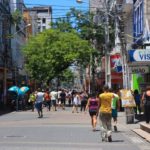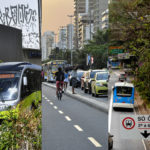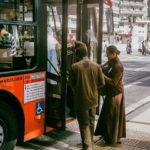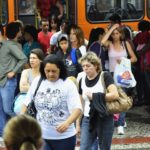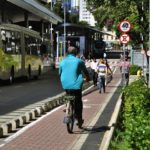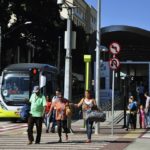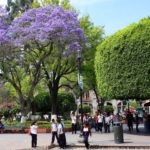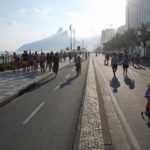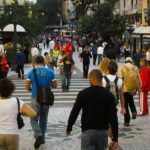Recent Posts by Luísa
Driving a car is often the easiest, most straightforward mobility option for many urban residents. There are a laundry list of reasons people just can’t seem to live without cars in cities: because they don’t feel that public transport or ...

The winners of the 2015 Sustainable Transport Award have been announced! Organized by the Institute for Transportation and Development Policy (ITDP), the Sustainable Transportation Award (STA) recognizes outstanding vision and innovation in sustainable transport over the past year. Announced today ...

As we recently discussed on TheCityFix, momentum is building for open streets in cities worldwide. Across seven Indian cities, tens of thousands of citizens are taking back their streets during weekly car-free days. Similar open streets events now occur in ...

Belo Horizonte, Brazil is a city of remarkable cuisine, green spaces, and architecture. The city is increasingly designed using people-oriented urban development strategies that prioritize the people who make the city come alive. Even for outsiders, this state capital feels like ...

When deciding between modes of transport, travelers consider several variables, typically including convenience, cost, time, reliability, and comfort. Another consideration – which is particularly important for women – is perceived safety. No one prefers public transport if it requires walking ...

São Paulo’s transport systems generate 30 million data points every day, an amount that exceeds even the city’s 23 million daily trips. Using this data to improve urban mobility is a challenge, but also a key opportunity for cities. That’s where MobiLab, ...

Increased bus fares are a greater concern to Brazilian citizens than increased electricity, water or telephone bills. This fact and others come from a recent study presented at the Brazilian National Association of Transport Operators (NTU) 2014 National Seminar on ...

Conducted by the Brazilian National Association of Transport Operators (NTU), this year’s Seminar on Urban Public Transportation responded to a growing demand among Brazilian citizens for improved public transport. On August 27 and 28, 2014, city planners, experts, transport operators, ...

The BRTData.org global database of bus rapid transit (BRT) data has recently been updated, and the increased number of BRT lines, as well as the length of those lines, reflects the commitment of cities around the world to provide high-capacity ...

While the idea of ‘free time’ is by nature associated with individual choice and being momentarily ‘free’ from the demands of everyday life, the amount and quality of this time we have at our disposal is closely linked to city-wide ...

The Massachusetts Institute of Technology (MIT) and ICLEI, the largest worldwide association of local governments, released a study last week showing how climate change has become a priority for cities across the globe. Entitled the “Urban Climate Change Governance Survey,” ...

As much as cities can be drivers of economic and social progress, sometimes it’s downright stressful to live amid the hustle and bustle of today’s urban centers. To escape this stress, many urban residents take refuge in green public spaces, ...

Traffic safety improvements in Europe are being hailed as one of the greatest advances for the region in the past decade. Europe should be proud of its success: since 2010, there have been 17% fewer deaths on the continent’s roads. ...

Belo Horizonte, one of the host cities for Brazil’s 2014 World Cup, is using its newfound spotlight to showcase its growing transport system. The city launched its MOVE bus rapid transit (BRT) system this past Saturday, March 8, 2014, which ...

The TheCityFix Brazil is in a race for the third consecutive Top Blog Award. In last year’s competition, TheCityFix Brazil won in the Sustainability category. This year, the blog is moving to the final stage of the competition, vying for the title of Best Sustainability Blog ...










